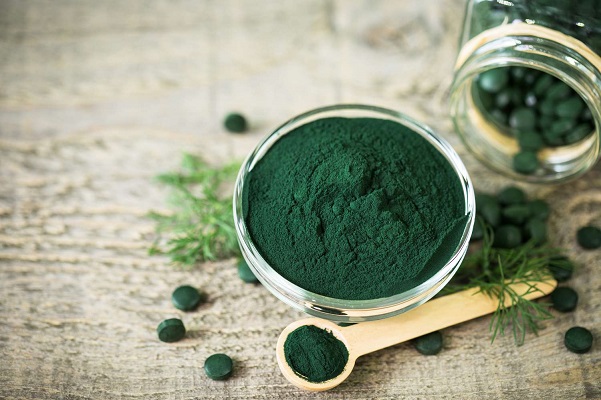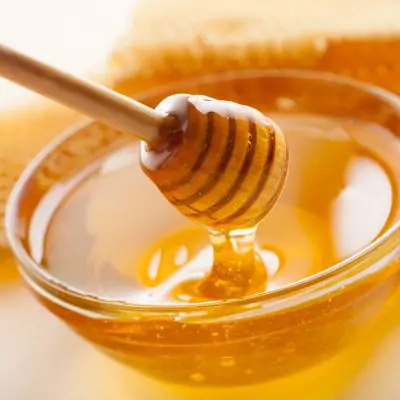On This Page
Overview
One of the enjoyable and fantastic rainy-time pleasures is sweet corn. This delectable treat offers several advantages. Because of its distinctive flavor, sweetness, and pleasant flavor, sweet corn is adored all over the world. It is a hybridized kind of maize also referred to as sugar corn. Its scientific name is Zea mays L. Some individuals believe that because of its name, it contains a lot of sugar. However, it is only a myth. It is rich in fiber and has several antioxidants, vitamins, and minerals. And it is because of these qualities that sweet corn has advantages and is one of the best superfoods.
Synonyms of Sweet Corn
- Zea mays
- Sugar corn
Nutritional Facts of Sweet Corn
| Calories: | 90 |
| Sugars: | 5 g |
| Fiber: | 1 g |
| Fat: | 1 g |
| Protein: | 3 grams (g) |
| Carbohydrates: | 19 g |
Phytochemical Constituents
- Vitamins (A, B, E, and K)
- Minerals
- Phenolic acids
- Carotenoids and flavonoids
Therapeutic Uses of Sweet Corn
- Digestion
Corn contains resistant starch, a type of fiber that is difficult to digest. Therefore, eating maize may be advantageous since it aids in the uptake of minerals, may function as a prebiotic, may aid in the thickening of faeces, and may facilitate their simple passage. Consuming sweet corn may therefore be beneficial for issues relating to the stomach.
- Heart Health
Being high in fiber is one of the advantages of sweet corn. Heart disease can be prevented in part by fiber’s potential to lower cholesterol and blood pressure. You can eat less because it is also filling. And that could lead to a wholesome weight loss.
- Gluten-Free
Sadly, wheat, a common food in India, causes a considerable percentage of persons to acquire an intolerance to the gluten proteins in these foods. To make chapatis, dosas, sweets, and naturally, gluten-free corn can be simply substituted for wheat. This is frequently advised for those with celiac disease.
- Prevents anemia
Anemia is brought on by iron, folic acid, and vitamin B12 deficiency. These vitamins and minerals, which are necessary for the formation of new red blood cells, are abundant in corn.
- Strengthens Nervous System Working
Due to the presence of ample amino acids, eating maize in moderation regularly helps to improve nerve impulse transmission, activate memory, and calm the mind. By keeping people in pleasant moods and encouraging restful sleep, maize aids in the treatment of anxiety and insomnia.
Home Remedies Sweet Corn
- Delays Aging
You must consume sweet corn if you want to stay young and keep your youthful appearance. It is an antioxidant powerhouse that can delay the aging process.
- Stops Hair Loss
Sweet corn’s vitamin C concentration, lycopene content, and other antioxidants contribute to the health of the hair strands. It helps in Managing the health of your hair thus preventing hair loss.
- UTI
Antibacterial and anti-inflammatory effects are present in corn. When ingested, it lessens symptoms of UTI, edema, and inflammation while also eradicating and preventing bacterial growth. This aids in the treatment of urinary tract infections as well as problems with the urine.
- Kidney stones
Antibiotics and antioxidants are important properties of corn. It controls the flow of urine and aids in kidney and bladder cleaning. The likelihood of kidney stones diminishes with normal urine flow. The easy removal of kidney stones that are already present is another benefit of urine output.

Have A Health Issue?
Consult Online
- Dr. Sahil Gupta (B.A.M.S., M.H.A.)
Ayurvedic Allergy Specialist
CEO & Founder of IAFA®
Ayurvedic Aspects of Sweet Corn
It is regarded as a calming food in Ayurveda for people with both Kapha and Kapha doshas. Other advantages of sweet corn include increased energy and a stronger immune system. It’s a great summer snack since it can calm Pitta. It lowers blood pressure and water retention while nourishing the Rasa Dhatu (plasma).
Daily Dose: On average, eating about 2 12 cups of maize per day is recommended.
Side Effects of Sweet Corn
- Allergic Responses
Consuming corn can cause allergies and symptoms including skin allergy, nasal allergy, (mucous membrane swelling), vomiting, etc. Additionally, many people experience asthma attacks and anaphylaxis after consuming maize. The ingestible protein zein found in corn is the primary cause of allergies.
- Bloating And Flatulence
Starch makes up a large portion of corn. When you eat it, your large intestine breaks it down and creates a lot of gas. Consequently, eating a lot of corn might result in bloating and gas.
Conclusion
Nutrient-rich corn has several benefits for health. One must take into account the negative impacts of excessive corn consumption as well. bloating, gas, and stomach distress can all be made worse by corn. So it’s recommended to consume in moderation.
If you face any kind of allergies resulting from the consumption of corn, you can consult Dr. Gupta at IAFA where you can get natural and ayurvedic management.
References
- https://www.sciencedirect.com/science/article/pii/S2213453018301009#:~:text=Corn%20nutrients%20and%20phytochemicals%20include,anthocyanins)%2C%20and%20dietary%20fiber.
- Cleveland Clinic: “12 Healthier toppings for corn on the cob.”










